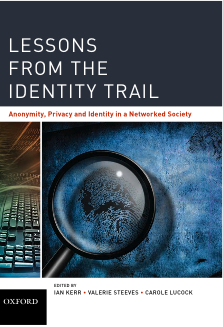Kevin Jon Heller has an interesting post trying to work out whether Israel's blockade of Gaza is legal.
One key question is whether the dispute between Israel and Hamas is of an international character.
If the conflict between Israel and Hamas is an international armed conflict (IAC), there is no question that Israel has the right to blockade Gaza. (Which is not to say that the manner in which Israel is blockading Gaza is legal. That’s a different question.) The 1909 Declaration Concerning the Laws of Naval War (the London Declaration), the first international instrument to acknowledge the legality of blockades, specifically recognized the right of belligerents to blockade their enemy during time of war. Article 97 of the San Remo Manual does likewise. And there is certainly no shortage of state practice supporting the legitimacy of blockades during IAC (the US blockade of Cuba, for example).
If it is not IAC — e.g. because Hamas/Gaza is not a state — then it turns out that the relevant international law seems pretty darn sparse.
The London Declaration does not justify such a blockade, because it only applies to “war”– war being understood at the time as armed conflict between two states. Does the San Remo Manual justify it? The Manual is not a picture of clarity concerning when its rules apply, but it does not seem to contemplate non-international sea conflicts. …
There also appears to be little, if any, state practice to support the idea that a blockade is legally permissible in NIAC
And there's a third option:
There is, however, another possibility: that Israel's blockade of Gaza is not a “belligerent blockade” at all, but is instead something akin to a “pacific blockade,” defined by the Dictionary of International Law as “a form of coercive measure short of war, whereby a state (or group of states) bars access to the coast of a state or part of it in order to prevent entry and exit of ships of the state under blockade.” I say “akin to” a pacific blockade, because — as the definition indicates — such blockades assume that the blockaded entity is a state, not a non-state actor. Even if Israel’s blockade of Gaza would analogically qualify as a pacific blockade, however, it would still be of questionable legality: pacific blockades are only legal with the approval of the Security Council, according to the Dictionary of International Law, and the Security Council has never approved the blockade of Gaza.
Prof. Heller suggests, very tentatively, that none of these three options justifies Israel's blockade. A commentator cites a US civil war precedent, but I am not clear how it would apply given that Israel does not claim the Gaza strip as domestic territory.
Personally, the second option seems like the most plausible argument for the Israeli government: even if the precedents for blockades in non-international armed conflicts are sparse, it does seem consistent with the evolving law regarding state responses to non-state belligerents. (That's a positive, not normative, claim, folks.) But I am anything other than well-informed in this area.

 Congratulations to
Congratulations to  Lessons from the Identity Trail (Ian Kerr, Valerie Steeves & Carole Lucock, eds.), a whale of a book, is being published today.
Lessons from the Identity Trail (Ian Kerr, Valerie Steeves & Carole Lucock, eds.), a whale of a book, is being published today.